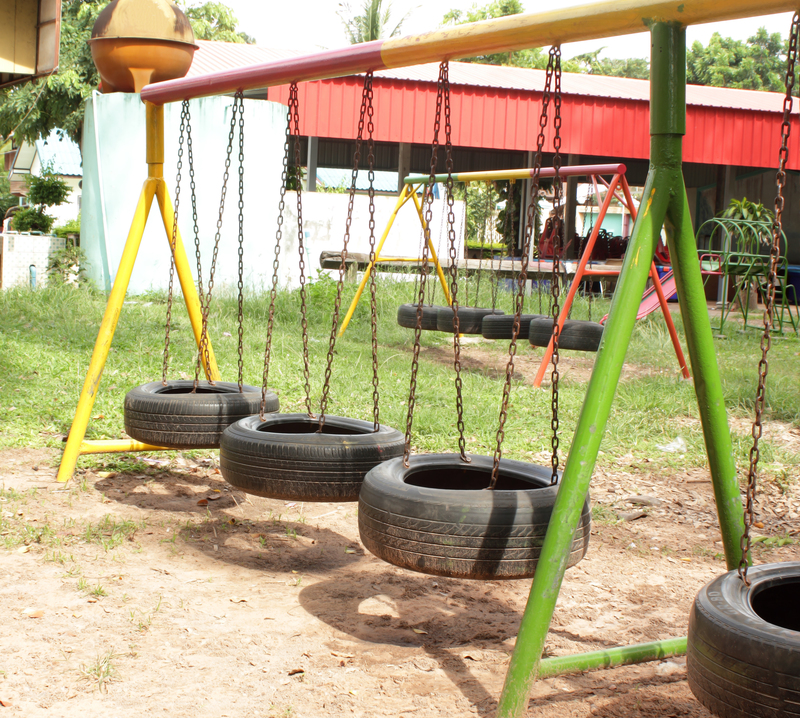Expert-Approved Waste Reduction Tips for Families: Sustainable Changes for a Greener Future
Are you looking for practical ways to reduce household waste? Embracing sustainable habits at home doesn't have to be overwhelming or time-consuming! Our comprehensive guide provides expert-approved waste reduction tips for families, empowering you to make eco-friendly choices that benefit your home and the planet. Read on for actionable advice, inspiring ideas, and easy-to-implement strategies that'll help your family minimize waste, save money, and live greener every day.
Why Reducing Household Waste Matters
Before we delve into the best family waste reduction tips, let's understand why cutting down on waste is crucial:
- Environmental preservation: Reducing waste limits landfill use, cuts pollution, and conserves resources.
- Financial savings: Consuming less and wasting less translates to lower expenses.
- Healthier lifestyle: Cutting food and plastic waste encourages healthier, more mindful consumption.
Now, let's explore proven methods and expert strategies for eco-friendly families to reduce waste at home.

1. Reassess Your Family's Consumption Habits
Audit Your Waste
- Start by tracking your waste for a week: note down what you throw away, from food scraps to packaging and single-use products.
- Identify the main waste sources in your household--this will reveal where improvements are needed most.
Expert Tip: "A household waste audit is the essential first step--it helps families make targeted changes for maximum impact." - Emma Green, Sustainability Coach
Adopt the 'Buy Less, Choose Well' Mindset
- Before every purchase, ask: Do we really need this?
- Invest in quality, long-lasting items instead of cheaper, disposable alternatives.
- Emphasize experiences and reusable gifts when celebrating special occasions.
2. Cut Down on Food Waste
Plan and Prep Meals with Purpose
- Shop with a meal plan and list to buy only what you need, avoiding impulse purchases.
- Batch cook and freeze leftovers for busy nights.
- Repurpose scraps--save veggie peels for homemade broth or turn overripe fruit into smoothies and baked goods.
Expert Tip: "Involving kids in meal planning and prep not only reduces waste, but teaches lifelong food skills." - Chef Jamie White
Practice First-In, First-Out (FIFO)
- Arrange your pantry, fridge, and freezer so older items are used first.
- Label leftovers and perishable goods with the date so you don't forget them.
Compost Food Scraps
Turn unavoidable scraps--like eggshells and coffee grounds--into nutrient-rich compost for your garden or community green space. Many municipalities offer compost collection, or try DIY backyard bins.
3. Embrace Reusable Alternatives
Swap Disposables for Reusables
- Cloth bags for groceries, produce, and bulk items.
- Refillable water bottles for each family member.
- Stainless steel or glass food containers for lunches and leftovers.
- Cloth napkins and towels instead of paper products.
Expert Tip: "Put together a 'zero waste kit' with bags, containers, and utensils in your car or backpack for whenever you're on the go." - Liz Miller, Environmental Educator
Choose Reusable Cleaning Solutions
- Refillable cleaning sprays: Buy concentrates instead of new bottles.
- Washable sponge cloths and mop pads over single-use options.
- DIY cleaning recipes with natural ingredients like vinegar, baking soda, and citrus peels.
4. Shop Smart and Reduce Packaging
Bulk and Local Shopping
- Buy grains, nuts, beans, and snacks from bulk bins to minimize excess packaging.
- Support farmers markets and bring your own containers for produce and eggs.
Skip Single-Use Packaging
- Opt for products in minimal or recyclable packaging, such as bar soap instead of bottled.
- Choose products packaged in glass, metal, or cardboard over plastic whenever possible.
Pro Tip: Many stores now offer refill stations for household staples, reducing both waste and costs!
5. Reuse, Repair, Repurpose
Get Creative with Second Life Solutions
- Mend clothes instead of discarding them--get the whole family involved in basic sewing skills.
- Post or donate unwanted items (books, toys, clothes) to neighbors, libraries, or charities.
- Repurpose jars and containers for storage, crafts, or homemade gifts.
- Use worn-out textiles as cleaning rags or DIY projects before tossing.
Host Clothing and Toy Swaps
Gather friends or neighbors to exchange outgrown clothes, children's gear, and toys. It's fun, saves money, and gives items a second life!
Master the Art of Upcycling
- Turn cardboard boxes into playhouses, organizers, or art projects.
- Transform old t-shirts into tote bags or quilts.
- Find inspiration online for upcycling everyday items and saving them from landfill.
6. Make Recycling a Family Habit
Understand Local Recycling Guidelines
Each community's program is different. Teach your family to sort household recyclables correctly (paper, cardboard, aluminum, glass, plastics) and to rinse containers before recycling.
Create a Home Recycling Station
- Set up accessible bins in the kitchen and other high-traffic areas.
- Clearly label each bin to make sorting easy, even for young kids.
- Schedule regular trips to return deposits or drop off specialty recyclables (e.g., batteries, electronics).
Expert Tip: "Making recycling fun and visible for kids builds lifelong responsibility and care for the environment." - Daniel Lee, Waste Reduction Specialist
7. Green Your Family Gatherings and Celebrations
Choose Sustainable Party Supplies
- Rent, borrow, or buy reusable dishware and decorations.
- Opt for digital invitations and thank you notes to cut down on paper waste.
Plan Eco-Friendly Activities
- Host craft sessions using recycled materials.
- Encourage gift exchanges focused on experiences or gently used items.
8. Teach Waste Reduction to Kids--And Lead by Example
Make Learning Fun
- Read storybooks about recycling and the environment together.
- Set up simple compost or recycling experiments.
- Give kids jobs, like rinsing recyclables or watering the compost bin.
Children learn best by watching grown-ups, so let them see you making eco-conscious choices daily!
9. Support Community Waste Reduction Initiatives
- Participate in local clean-up days, repair cafes, or sustainability fairs.
- Advocate for better recycling programs, composting, and green spaces at your child's school.
- Connect with zero waste groups online or in your area to share resources and inspiration.
10. Track Your Family's Progress and Celebrate Successes
- Set achievable goals, like reducing your household's weekly trash by one bag.
- Keep a "waste journal" and tally your improvements month by month.
- Celebrate milestones--treat the family to a fun sustainable outing or plant a tree to commemorate your efforts!
Additional Expert-Backed Waste Reduction Strategies for Families
- Go paperless: Move bills, statements, and subscriptions online whenever possible.
- Opt for rechargeable batteries: Save money and reduce toxic electronic waste.
- Share rather than own: Borrow tools, books, or sports equipment from libraries and neighbors instead of buying new.
- Limit fast fashion purchases: Choose ethical brands, buy secondhand, or set up clothing swaps with friends.
- Grow your own food: Even a windowsill herb garden can cut food waste and packaging.
- Reduce junk mail: Unsubscribe from catalogs and mailing lists you no longer want.

Overcoming Common Barriers to Family Waste Reduction
Don't let perfectionism get in the way of progress! Remember, even small changes make a difference. If you hit obstacles, try these solutions:
- Busy schedules: Start with one change at a time, like banning single-use plastic bags or committing to meal planning.
- Reluctant family members: Involve everyone in decision-making and celebrate even small wins.
- Price concerns: Many waste reduction habits (like using less and buying less) actually save money over the long term.
Conclusion: Every Family Can Make a Difference
Implementing expert-approved waste reduction tips for families doesn't require drastic life changes or expensive products. By starting small, involving everyone, and sticking with it, your family can dramatically reduce waste, save resources, and inspire others in your community. Remember: every mindful choice you make leads us closer to a healthier, more sustainable world. Share your progress, learn from others, and celebrate the powerful impact of eco-conscious family living!
Ready to Start? Here's Your Quick-Start Family Waste Reduction Checklist:
- Conduct a family waste audit and identify top waste areas
- Create a meal plan to cut down on food waste
- Switch to reusable bags, bottles, and containers
- Set up convenient recycling and compost stations
- Involve kids in fun waste reduction activities
- Share, repair, and upcycle as much as possible!
Your journey to sustainable living begins at home. Use these practical waste reduction tips for households to set a positive example and build a greener legacy for future generations!